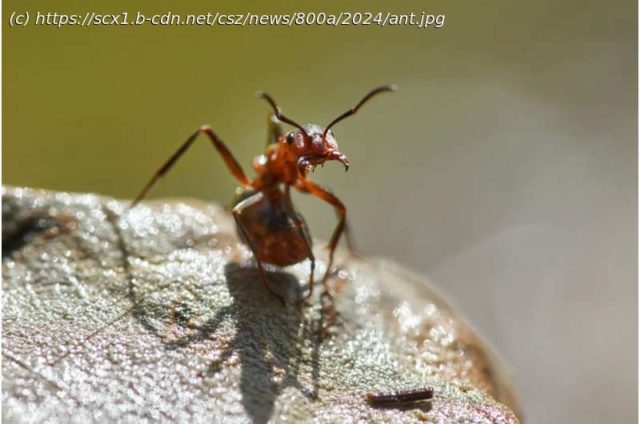An insect bites off another insect’s leg. Is this predatory behavior, aggression, defense, competition or something else? In the case of carpenter ants, it’s for the good of the amputee and to the benefit of the colony.
An insect bites off another insect’s leg. Is this predatory behavior, aggression, defense, competition or something else? In the case of carpenter ants, it’s for the good of the amputee and to the benefit of the colony.
A July 2024 University of Lausanne study found carpenter ants (Camponotus floridanus) carry out lifesaving amputations on their colony siblings. It is the first known example of a non-human animal amputating limbs to prevent or stop the spread of infection.
The study showed the bites were not random and resulted in a survival rate of over 90%. The three ants in the experiment that did not have their legs amputated died.
So what makes ants such advanced surgeons in the animal kingdom?
Insects aren’t the only animals to treat illness and disease. Scientists have observed self-medication in a range of species including bears, elephants, moths, starlings and dolphins. Chimpanzees search for and eat specific plants to treat diseases and have recently been reported using insects to treat not only their own wounds but those of others.
However, carpenter ants may have a particular need to become surgeons.
Apart from initiating digestion, most ants’ salivary secretions have antimicrobial properties, which help to control bacterial infection when they lick wounds. This is common to many groups of animals, including primates. A 2023 study of the sub-Saharan ant Megaponera analis found they licked wounds, including those of other ants, with saliva mixed with antimicrobial compounds from their thoracic metapleural glands. This is a structure unique to ants in their thorax. The saliva reduced infection of injured nest mates by 90%.
Unfortunately, almost all ants in the genus Camponotus, which carpenter ants belong to, don’t have these glands.






